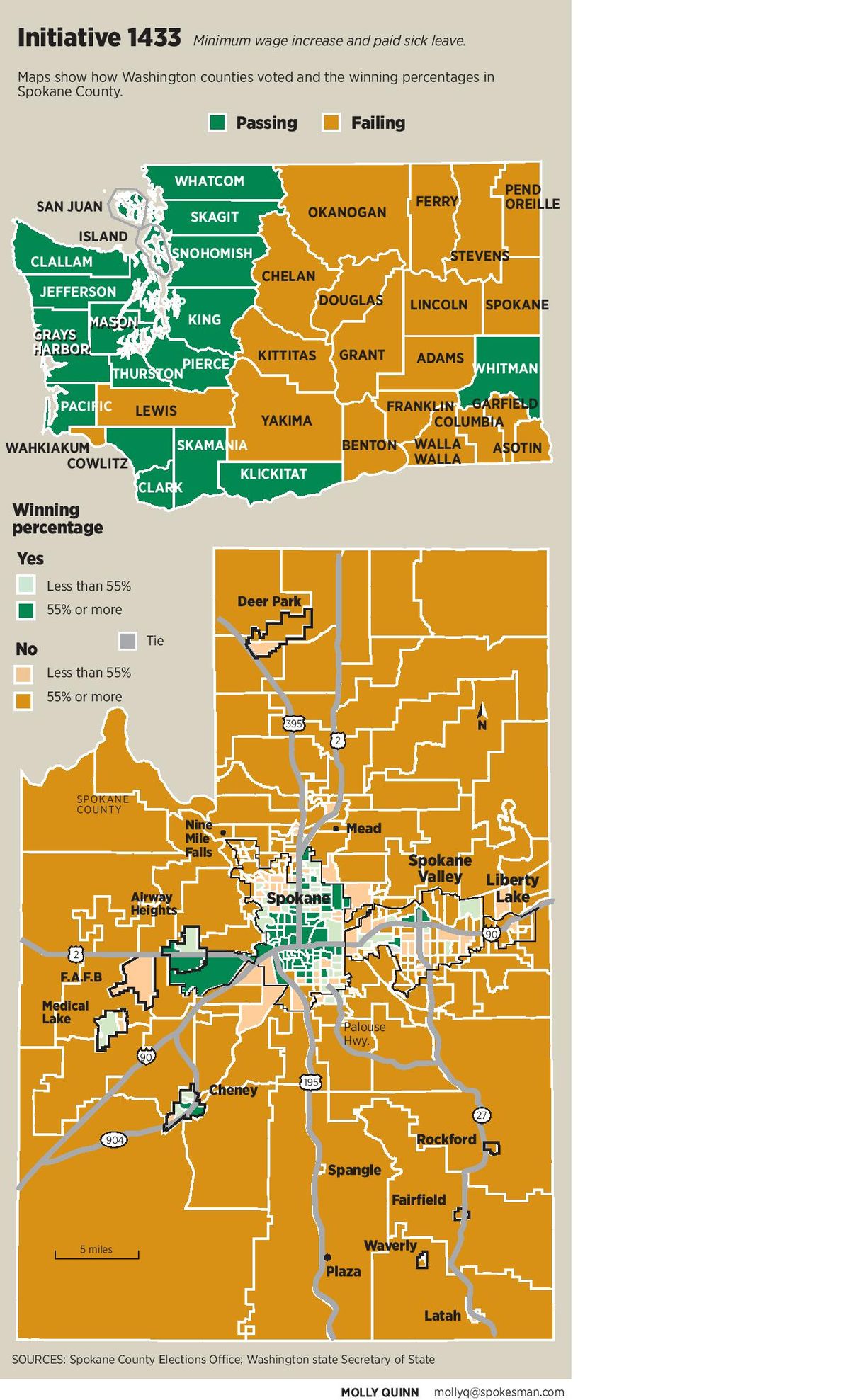Spokane follows state trend on gun initiative, bucks it on minimum wage

Spokane County voters tended to agree with others in Washington state that a judge should be able to remove firearms from people who are proven to pose an extreme risk of harming themselves or others.
Initiative 1491 passed handily across the state, and in the county.
But they bucked the state trend on another initiative that will raise the minimum wage to $13.50 an hour by 2020 and require most businesses to provide employees with some sick or safe leave. While the state overall said yes to Initiative 1433, Spokane voters said no.
I-1491 was passing in all but six of the state’s 39 counties by Wednesday afternoon, with more than 70 percent of Washington voters saying yes. Spokane County was a bit less positive, with 64 percent of the ballots marked “yes” in the most recent tabulation.
The initiative, which was described by supporters as a gun-safety measure, passed in every city along Spokane’s Interstate 90 core, from Cheney to Liberty Lake. It did less well in the suburbs and lost by more than 55 percent in rural precincts in the southeast and northern parts of the county.
I-1433 had received about 60 percent of the vote by Wednesday afternoon, with 71 percent approval rating in King County and passing in most of Western Washington as well as Whitman County. But it failed in other counties east of the Cascades, including in Spokane County where about 55 percent of ballots were marked “no.”
The minimum-wage initiative was soundly defeated in the city of Spokane Valley, Liberty Lake and at Fairchild Air Force Base. Voters in the city of Spokane were split, with those in precincts closest to downtown leaning yes and those farther north or south trending no.
On other ballot measures, Spokane County voters were in tune with the state overall. They approved I-1501, designed to protect seniors and vulnerable adults; I-735, which urges Congress to pass a constitutional amendment to control some campaign spending; and SJR-8210, which moves up the deadline for redrawing congressional and legislative districts after a U.S. Census. Spokane and the state as a whole rejected I-732, a carbon tax, and I-1464, which would put limits on campaign contributions and lobbyists and provide voter-directed financing for some candidates while removing a sales tax exemption available to some out-of-state shoppers.